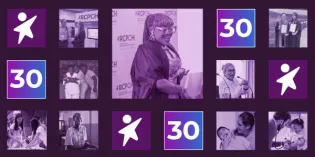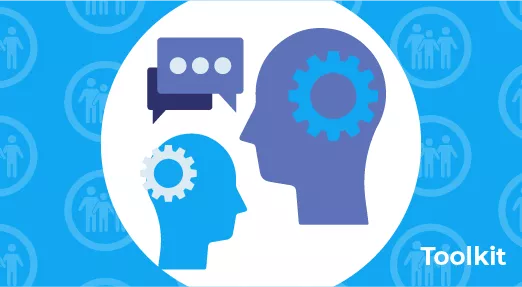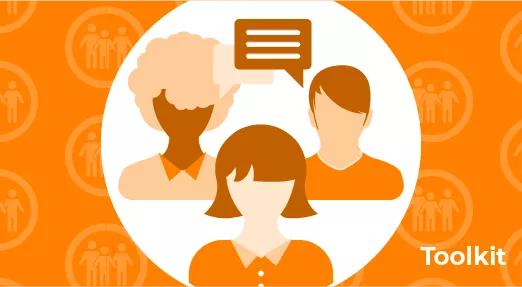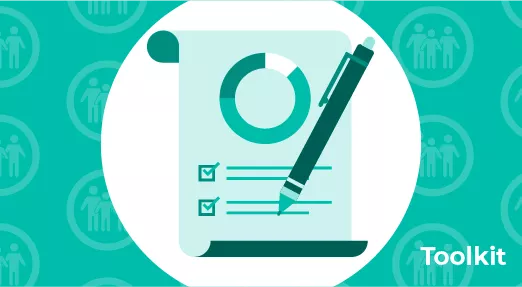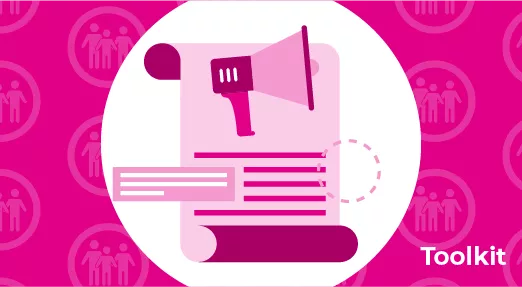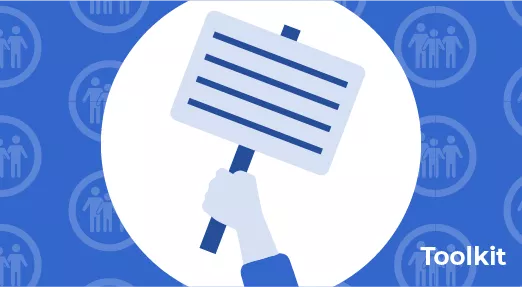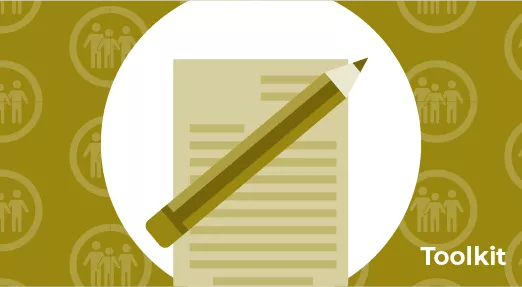
- Healthier Together, Support with the Cost of Living- Aneurin Bevan University Health Board
- Major Trauma School Reintegration Project - Greater Manchester
- Reducing Inequalities in Paediatric Diabetes Care Project - Nottingham University Hospitals NHS Trust
- RESPOND Project - University College London Hospital NHS Foundation Trust
- You Matter Project - Sheffield Children's NHS Foundation Trust
- Have a case study to share?
- From our health inequalities toolkit
Healthier Together, Support with the Cost of Living- Aneurin Bevan University Health Board
The Aneurin Bevan University Health Board's Support with the Cost of Living project aims to respond to the challenge of child poverty and its impact on healthcare by addressing the lack of awareness and knowledge among healthcare staff regarding local services available to families in need. It also aims to tackle the discomfort of discussing financial difficulties with families, which hinders the identification and support of families living in poverty.
Healthier Together, Support with the Cost of Living Project:
- What is the challenge this project is aiming to respond to?
-
In 2021, a survey of Paediatric Medical and Nursing staff within Aneurin Bevan University Health Board showed that although 44% of respondents experienced child poverty weekly in their clinical practice, 62% of respondents were not aware of local services available for these families. 69% of the survey’s respondents were not comfortable in discussing with families whether they are in financial difficulty. This highlighted a need for an intervention to increase healthcare staff’s confidence and knowledge in dealing with poverty.
- What are the aims of the project?
-
The project has two main aims. Firstly, it aims to improve collaboration and linkages between secondary care, primary care, and community teams to address the effects of poverty on patients. Secondly, it aims to enhance the understanding of healthcare staff about the challenges faced by families living in poverty and enable them to signpost to support when necessary.
- What impact has the project made?
-
The project has developed valuable links with primary care, community teams, and local charities to signpost families in need to appropriate support services. It has also created a webpage on the ABUHB Healthier Together Website, providing information and links to organizations that assist with various aspects related to the cost of living including housing issues, financial advice, energy and water bills, getting food on the table, and other useful organisations. Hospital staff can print off information pages to give to families or can send families a link to the page by SMS.
Additionally, a short screening tool has been developed to identify children living in poverty during hospital visits. Positive feedback has been received from healthcare staff about the webpage, and the screening tool has been refined based on feedback from families to make it shorter and more user-friendly.
- What advice would you give a colleague if they wanted to start a project focused on reducing health inequalities?
-
Speak to your colleagues to find out what already exists. Spend time developing links with social and voluntary sectors, and other people you may not work with regularly in your day-to-day role. Speak to families to find out what they need. Gather feedback for your projects before fully rolling them out.
- Find out more about this project
-
To find out more, contact:
Dr Marion Schmidt Marion.Schmidt@wales.nhs.uk
Dr Buddug Eckley buddug.eckley@wales.nhs.uk
Major Trauma School Reintegration Project - Greater Manchester
In 2022, the Royal Manchester Children's Hospital, Manchester Foundation Trust team has seen the complexity and psychosocial needs of injured children increase. A major trauma injury can impact the child or young person’s (CYP) physical and psychosocial wellbeing, access to education and the family’s employment and financial status. The team have collated data to look at the barriers and enablers of return to school following traumatic injury and have evaluated their services annually, changing practice as patients’ needs have been identified.
Find out more about the Trauma School Reintegration Project:
- What is the challenge this project is aiming to respond to?
-
Prior to the project’s inception, children and young people (CYP) were referred to universal health and social services on discharge from the major trauma (MT) centre. These services often do not meet the complex needs of young people discharged from MT services due to their complex psychosocial and medical needs.
The team have collated data to look at the barriers and enablers of return to school following traumatic injury and have evaluated their services annually, changing practice as patients’ needs have been identified. The main factors which hinder the return to education are: Parental stress and anxiety, financial difficulties (including lack of access to transport) not being able to access the school environment, lack of confidence particularly around change in body image and activity restrictions.
To support CYP with more complex rehabilitation and psychosocial needs a major trauma (MT) MDT clinic has been established by the team. The clinic is a one stop clinic where CYP and their families can be assessed and supported by multiple specialists. Further, the team have worked alongside a Post-Doctoral Clinical Academic Fellow to support their research to understand the needs of injured children and their families. This surveyed 144 children and their carers to identify their needs after injury. The research has informed the clinical practice of the team.
- What are the aims of the project?
-
The project aims to deliver the right care, at the right time; in the right place to children and young people who have rehabilitation needs. It aims to decrease variation, increase quality and standardise pathways across Greater Manchester. It brings together tertiary care, primary care, education, social care and charitable and third sector organisations.
The project aims to:
- Understand the level of services available to the children and young people of Greater Manchester
- Establish if the services provided are meeting the needs and expectations of patients, their families and carers
- Compare rehabilitation services provided across the conurbation.
The project supports all school age children (4 years-19 years) admitted to the Greater Manchester Major Trauma Network with major trauma injuries including:
- Complex Musculoskeletal Trauma
- Traumatic Brain Injury
- Intra-abdominal Trauma
- Spinal Injuries.
- What impact has the project made?
-
The School Reintegration Facilitator (SRF) has worked in partnership with families and schools to deliver strategies to meet their needs. CYP have been supported to return to school in a timely manner with reasonable adjustments and support in place.
The team provide ongoing psychosocial support for the CYP and their families and link/refer families with Clinical Psychology Services, CAMHS, Early Help and Social Care following their injury. For families who have been non-compliant with their healthcare, they have been supported to attend appointments by being referred to other agencies, supported with transport, or had amended appointment times to suit the family’s needs resulting in a reduction in missed appointments and potential readmission to hospital.
In the first three years of the service, they have supported over 300 CYP and their families to return to education following their traumatic injury. As a service they use evidence-based practice and holistic assessment to ensure they provide young people with a quality and equitable service.
- What advice would you give a colleague if they wanted to start a project focused on reducing health inequalities?
-
Focus on the holistic needs of the children and families you are wanting to support. We reviewed our service and data on a regular basis and found often it is the psychosocial needs of the family that identifies the support they require rather than the severity of the injury and have adapted our services to support this. Important that you assess the family first and discuss their needs with them rather than pre-empt what you feel they need.
- Service user feedback
-
The service has received positive feedback from patients, families, teachers, and health care professionals including the Major Trauma Clinical Reference Group and the National Major Trauma Children's Networks.
- Parent/child: “The support we got was above and beyond we couldn't of asked for more support than we got to help us support my stepdaughter the best way possible and advice on the best way to do things for her she's now on road to recovery fully and is doing amazing”
- Teacher: “The communication and information from the team was fantastic, it enabled me to support the young persons transition back to school in a more structured and safe way. Due to her support my relationship with young persons mum improved too, as she could see we was there to support her and her child. Thank you very much.”
- “Manchester is an exemplar of end-to-end rehabilitation services”
- “Continued support from a key worker follows patients through care provided in trust, community and post-discharge if required. Developments of the rehabilitation services to include links with community services and schools.” Area of good practice highlighted at the RMCH Major Trauma Peer Review (2020)
- Find out more about this project
-
To find out more, contact helen.blakesley@mft.nhs.uk.
Reducing Inequalities in Paediatric Diabetes Care Project - Nottingham University Hospitals NHS Trust
There is widening socioeconomic and ethnic disparity in insulin pump use and HbA1c for children with Insulin dependent diabetes mellitus (IDDM) in Nottinghamshire. Nottingham University Hospitals NHS Trust created this project with the aim to reduce inequalities in paediatric diabetes care by analysing data and raising awareness of these health inequalities.
Find out more about the Reducing Inequalities in Paediatric Diabetes Care Project:
- What is the challenge this project is aiming to respond to?
-
The project is in response to the National Paediatric Diabetes Audit (NPDA), which continues to reveal a widening socioeconomic and ethnic disparity in use of technologies associated with lower HbA1c and improved health outcomes (Royal College of Paediatrics and Child Health [RCPCH], 2021). Beneficiaries are in particular those from higher (ie poorer) socioeconomic groups, and also those from ethnic minority groups, but it will benefit all.
- What are the aims of the project?
-
The aim of the project is to reduce the socioeconomic and ethnic disparities in insulin pump use and HbA1c for children with IDDM in Nottinghamshire.
They followed the national diabetes audit in terms of inclusion criteria, and using pre-existing databases pulled out a year’s worth of data relating to Nottinghamshire's 361 eligible patients. They analysed, shared and discussed findings, locally and nationally, thereby raising awareness of local health inequalities within paediatric diabetes, and starting a discussion around how best to facilitate improvement. The first step was undertaken by a small number of doctors including regional lead and admin staff, the ongoing conversation and improvements involve the wider team.
- What impact has the project made?
-
A more detailed audit of Nottingham practice revealed that whilst nationally the difference in HbA1c between White and Black children is 7.3mmol/mol, in Nottingham the difference is only 1.7mmol. HbA1c for those children identifying as Black is 13.1mmol/mol lower than nationally, but only 3.5mmol lower in those identifying as Mixed ethnicity.
Insulin pump use is higher across all ethnic groups in Nottingham compared with nationally (in brackets):
- White 54% (40%)
- Asian 56% (30%)
- Mixed 46% (35%)
- Black 41% (27%)
This data was shared at the 2021 national British Society for Paediatric Endocrinology and Diabetes (BSPED) conference which has further raised the profile, and increased conversation about tackling racial and socioeconomic health inequality in diabetes. The findings have validated the ongoing work of the MDT supporting those on Nottingham's "high HbA1c pathway".
- What advice would you give a colleague if they wanted to start a project focused on reducing health inequalities?
-
- Start by increasing personal awareness of the problem and being aware of unconscious personal bias.
- Prove and measure health inequality by audit so that there is a bench mark from which to improve, then re-audit.
- Raise awareness by publishing and sharing findings locally and nationally.
- Look at what initiatives other trusts have started and what research has already been done- including national audits.
- Listen to people from the disadvantaged groups, including voice of the child.
- Involve multidisciplinary team, as health inequality is a complex multifaceted problem
- If resources (time or infrastructure) are limited, start small, with something easy to measure or an easy win, to encourage the team and generate momentum.
- Work with a friend or colleague for accountability and encouragement.
- Find out more about this project
-
Find out more about this project (please note amendment needed to socioeconomic data in this linked article).
To find out more, contact sarah.hill118@nhs.net.
RESPOND Project - University College London Hospital NHS Foundation Trust
RESPOND is a community-based integrated health service for asylum-seekers. Many asylum-seeking children and families arrive with complex profiles of health and well-being needs for which traditional NHS healthcare systems struggle to offer appropriate, joined-up and trauma-informed care. The RESPOND service aims to unite practitioners from across multiple agencies to support holistic health screening and care planning for recently arrived asylum-seeking children, adults and families.
Find out more about the RESPOND Project:
- What is the challenge this project is aiming to respond to?
-
Refugee migration to the UK shows little sign of diminishing. Many asylum-seeking children and families arrive with complex profiles of health and well-being needs for which traditional NHS healthcare systems struggle to offer appropriate, joined-up and trauma-informed care. Significant barriers to accessing health services exist for asylum-seekers, including language difficulties, stigma, economic and digital poverty and repeated residential relocation. The RESPOND service was developed at UCLH to help overcome barriers to accessing health care for asylum-seekers, and to ensure they get the right care, at the right time, delivered by the right people.
- What are the aims of the project?
-
The RESPOND service aims to unite practitioners from across multiple agencies (including but not limited to primary care, NHS and third sector mental health services, social care and safeguarding, general and community paediatric and infection specialists) to support holistic health screening and care planning for recently arrived asylum-seeking children, adults and families. Specialist nurse-led screening takes place in the community at or near temporary accommodation sites, using a trauma-informed approach and language interpretation. Each health assessment explores physical and mental health needs and includes infection screening as well enquiry about safeguarding, social and developmental needs. Signposting and referrals to relevant NHS services are made and close partnerships with local authority ‘Early Help’ teams, education services and the voluntary sector provide support with housing, schooling, and welfare.
An individualised, integrated health care plan is created, with input from a tertiary-level multidisciplinary refugee health MDT for the most complex cases. Each child and family receives a written health plan, outlining key health issues identified and specific actions needed to address these. This health plan travels with the family on relocation, avoiding a ‘back to square one’ situation with each short notice move between temporary accommodation sites.
- What impact has the project made?
-
They have screened more than 900 patients, more than a third of which are families with young children. Issues identified are wide-ranging and include undiagnosed or unmanaged conditions such as epilepsy, diabetes and genetic syndromes as well as significant safeguarding concerns related to domestic violence, human trafficking and separated children. They have seen patients with shrapnel wounds, evidence of torture, and provided a space for the first disclosures of sexual violence. Out of every 10 families seen, nine require onward referral for further assessment and support of mental health needs. Infections have been found and treated in a third of those screened, including latent TB, strongyloidiasis and schistosomiasis.
- What advice would you give a colleague if they wanted to start a project focused on reducing health inequalities?
-
Collaboration. Effective strategy. Seek funding. Understand your target group. Be flexible and adapt!
- Service user feedback
-
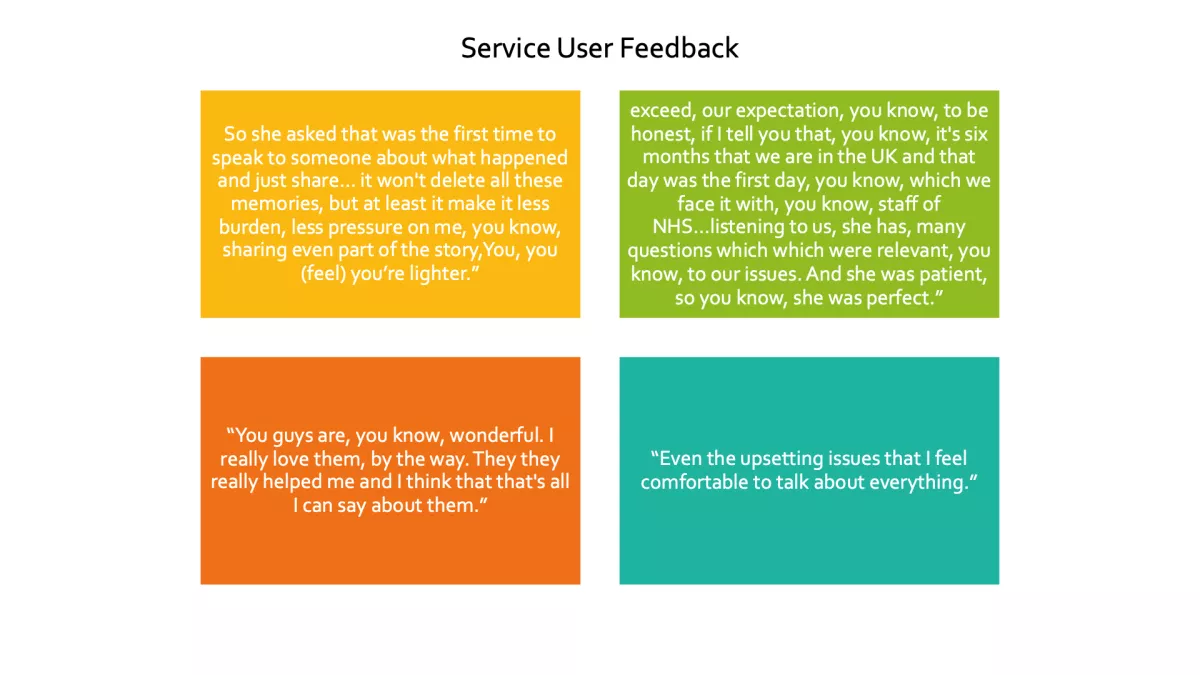
Provided by the RESPOND project - Find out more about this project
-
Contact sarah.eisen@nhs.net.
You Matter Project - Sheffield Children's NHS Foundation Trust
Sheffield Children's NHS Foundation Trust provides parents with resources to allow them to maintain basic hygiene from the point of admission and ensure that no families go hungry. They started the You Matter project which has 3 packages: You matter care package, you matter food pledge and you matter support.
Find out more about the You Matter Project:
- What is the challenge this project is aiming to respond to?
-
This project aims to respond to the challenge of poverty, food insecurity and ensure that all families admitted in as patients have access to resources to support their basic needs when their children are admitted to hospital.
- What are the aims of the project?
-
The project aims to provide parents with resources to allow them to maintain basic hygiene from the point of admission, ensure that no families go hungry by developing a food pledge and supporting families by signposting them to resources to support them financially alongside the development of access to Citizen’s advice booths.
The three packages:
Aim 1 (you matter care package)
- They have installed shower gel and shampoo in all parent showers and provide towels to allow parents to wash. All parents are given a postcard on admission to tick what other resources they may need such as toothbrushes, sanitary products.
Aim 2 (You matter food pledge)
- They have introduced a £1.50 hot meal of the day and 20% discount on all hot food in the canteen for families with longer stays.
- They are working with Food Works Sheffield, a social enterprise which upcycle quality surplus (they save 5000 tonnes of food from going to landfill/year) and locally grown ingredients to make healthy meals. They plan to introduce these as a pay what you can option for families and provide freezers to store and microwaves to re-heat, allowing families to have autonomy and choice at ward level.
Aim 3 (You matter support)
- They have developed a signposting leaflet to be available to all families, in inpatient, outpatient and emergency department settings, to highlight local organisations which can provide guidance related to increasing income, accessing support e.g. housing, citizen’s advice bureau (CAB) and mental health resources for CYP. They are in the process of applying for funding for a CAB booth to allow families to have access to one to one advice whilst visiting our trust.
- What impact has the project made?
-
They have already received positive feedback from families on the provision of basic care resources, particularly sanitary products. Staff members have found that families are less stressed about how they will look after themselves when in patients, it has also been a positive for staff wellbeing in taking care of our families.
- What advice would you give a colleague if they wanted to start a project focused on reducing health inequalities?
-
Get a team together to help, be curious and open about what would help in practice and be prepared to change and adapt along the way.
- Find out more about this project
-
See family wellbeing signposting leaflet
To find out more, contact sally.gibbs1@nhs.net
Have a case study to share?
If you have a project we could showcase, we invite you to share details on our short form - see more details, including our privacy policy.



